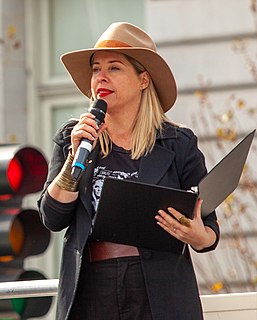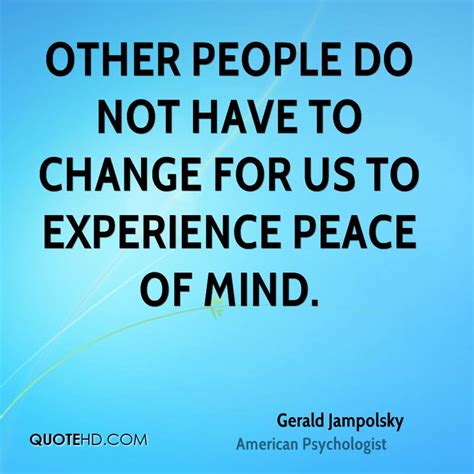A Quote by Arthur Schopenhauer
Reason deserves to be called a prophet; for in showing us the consequence and effect of our actions in the present, does it not tell us what the future will be?
Related Quotes
Big Data allows us to see patterns we have never seen before. This will clearly show us interdependence and connections that will lead to a new way of looking at everything. It will let us see the ‘real-time’ cause and effect of our actions. What we buy, eat, donate, and throw away will be visual in a real-time map to see the ripple effect of our actions. That could only lead to mores-conscious behavior.
Man can only be certain about the present moment. But is that quite true either? Can he really know the present? Is he in a position to make any judgment about it? Certainly not. For how can a person with no knowledge of the future understand the meaning of the present? If we do not know what future the present is leading us toward, how can we say whether this present is good or bad, whether it deserves our concurrence, or our suspicion, or our hatred?
Most people have learned to live in the moment. The argument goes that if the past has uncertain effect on the present, there is no need to dwell on the past. And if the present has little effect on the future, present actions need not be weighed for their consequence. Rather, each act is an island in time, to be judged on its own. ... It is a world of impulse. It is a world of sincerity. It is a world in which every word spoken speaks just to that moment, every glance given has only one meaning.
I believe we have these capabilities. It doesn't mean that we will use them. Our future is not assured here. It's not clear that we will survive our own folly, but we have a rare opportunity to do that if we listen and see the messages that nature is showing at us right now, that the finiteness of our own resources and our own planet are showing us right now.
Before making peace, war is necessary, and that war must be made with our self. Our worst enemy is our self: our faults, our weaknesses, our limitations. And our mind is such a traitor! What does it? It covers our faults even from our own eyes, and points out to us the reason for all our difficulties: others! So it constantly deludes us, keeping us unaware of the real enemy, and pushes us towards those others to fight them, showing them to us as our enemies.
While optimism makes us live as if someday soon things will soon go better for us, hope frees us from the need to predict the future and allows us to live in the present, with the deep trust that God will never leave us alone but will fulfill the deepest desires of our heart... Joy in this perspective is the fruit of hope.
Psychoanalysts are fond of pointing out that the past is alive in the present. But the future is alive in the present too. The future is not some place we’re going to, but an idea in our mind now. It is something we’re creating, that in turn creates us. The future is a fantasy that shapes our present.
When we build ... let it not be for present delights nor for present use alone. Let it be such work as our descendants will thank us for, and let us think ... that a time is to come when these stones will be held sacred because our hands have touched them, and that men will say as they look upon the labor, and the wrought substance of them, See! This our fathers did for us!
If we only look far enough off for the consequence of our actions, we can always find some point in the combination of results by which those actions can be justified: by adopting the point of view of a Providence who arranges results, or of a philosopher who traces them, we shall find it possible to obtain perfect complacency in choosing to do what is most agreeable to us in the present moment.
Let each of us examine his thoughts; he will find them wholly concerned with the past or the future. We almost never think of the present, and if we do think of it, it is only to see what light is throws on our plans for the future. The present is never our end. The past and the present are our means, the future alone our end. Thus we never actually live, but hope to live, and since we are always planning how to be happy, it is inevitable that we should never be so.









































